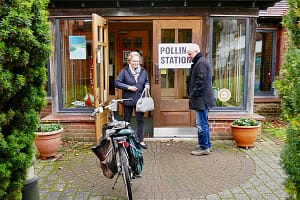Sustainable waste management company Biffa is pleased to see the Government taking a stand on wishcycling – but householders need more information to take concrete action and curb contamination.
Research from Biffa revealed that 17% of England and Wales’s waste from businesses and households could not be recycled because of contamination. Government and industry must do more to make sure consumers are empowered to reduce contamination in their household waste.
Roger Wright, Waste Strategy & Packaging Manager at sustainable waste management company Biffa said, “Contamination happens when items are disposed of in the wrong bins or haven’t been rinsed before being recycled. Contamination with food waste is a routine problem which means valuable resources are lost and can’t be returned to the circular economy.
It’s vital that as a nation we get better at effective ‘pre-cycling’, as in sorting waste properly before collection. This includes things like separating out food waste and scraping or rinsing food trays and packaging before disposing in the proper bins, to reduce contamination.
We can support this as an industry, and potentially at local government level, by creating voluntary schemes and incentives to help people understand why separating waste materials is so important.”
Understand on-pack recycling labels (OPRLs)
All packaging contains an OPRL, explaining whether it can or cannot be recycled (along with guidance for doing so if necessary). Consumers and businesses should seek out guidance on what recycling symbols on packaging mean then share this knowledge with their communities (from colleagues to clients). The system of symbols currently in use is not perfect and can be difficult to understand, but Biffa is supportive of forthcoming Government legislation to have simpler system of symbols to make it easier for everyone to recycle.
Get clued up on plastic
There are seven different types of plastic – ranging from PET (which is used in plastic drinks bottles) through to PVC (found in things like plastic food wrap) – but not all of them are recyclable. The types of plastic can be determined by their plastic resin code (a triangle on packaging with a number from one to seven inside). Generally, resin codes 1,2, 4 and 5 are recyclable, while 3, 6 and 7 are not – but it’s best to refer to the packaging’s OPRL for specific guidance.
Use recycling centres and sustainable waste management companies
Some recyclable items are unable to go in standard recycling bins – for example, electrical items. Manufacturers, producers, or retailers will pay for electrical items to be recycled. These are usually broken down to separate the different materials they are made so they can be recycled individually.
Waste electrical and electronic waste (WEEE), along with items like furniture and batteries, are however accepted at local recycling centres or by waste management providers. Ensuring recyclables are disposed into the correct waste streams stops contamination at the source, so explore alternative disposal methods for any uncommon recyclables.
Stop ‘wish-cycling’
As a society we are rightly more eco-conscious than ever, however ‘wish-cycling’ is a problem. In an effort to recycle more, ‘wish-cycling’ means those who throw waste into recycling bins without checking whether the item can actually be recycled.
This results in high levels of contamination where rogue items can potentially prevent a whole load of waste from being recycled. Rinsing recyclable waste (as indicated on OPRLs) will also help to ensure packaging can be recycled rather than being too contaminated to process.
Contamination leads to waste moving down the waste hierarchy (a framework for managing waste), where it’s less recyclable or recoverable. Greater education – like Biffa’s guides on which plastics can be recycled and what the recycling symbols mean – makes the entire process easier, reducing the chance of mistakes being made.






Leave a Comment